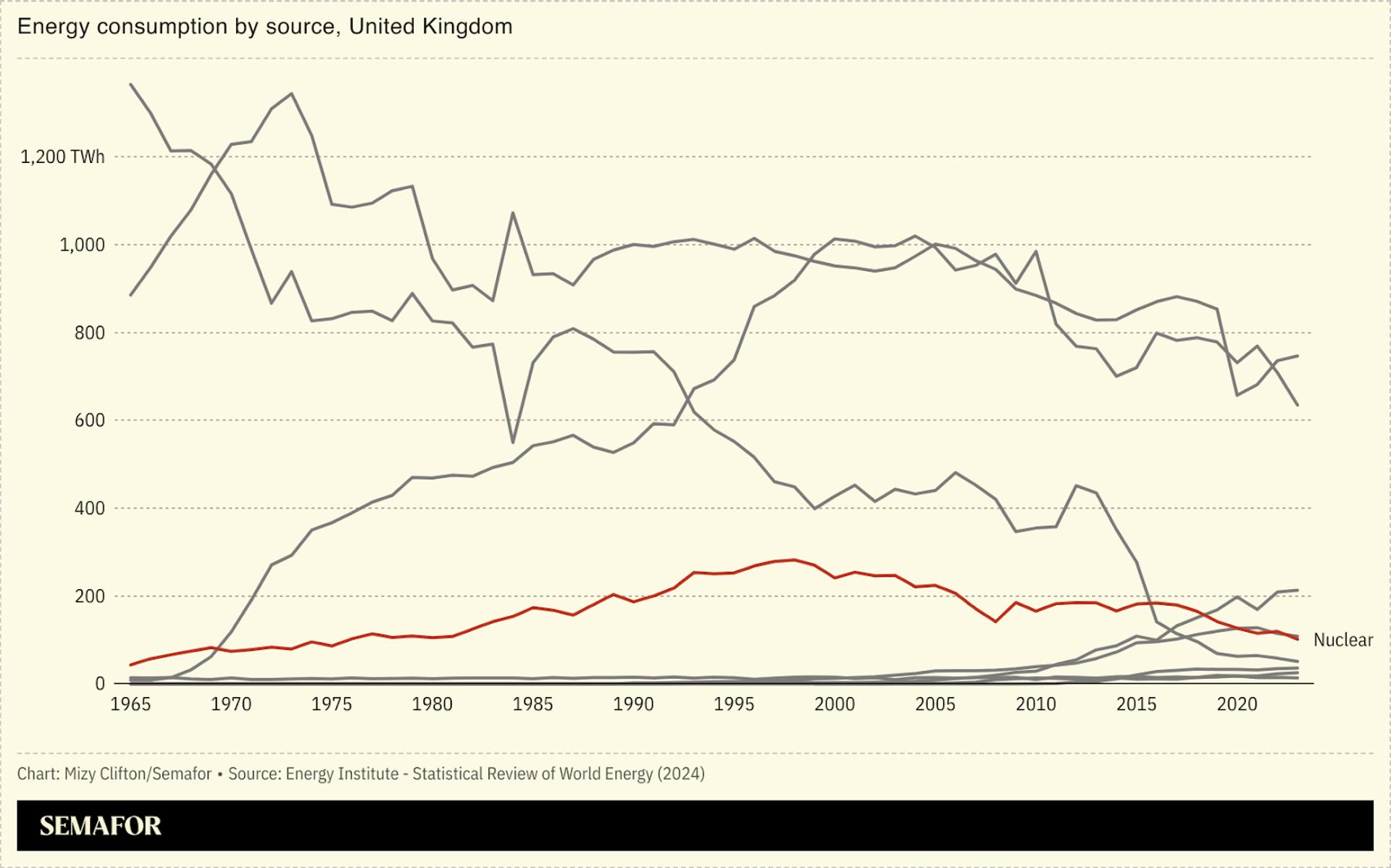The News
The UK government announced plans to approve more nuclear reactors Thursday, including giving developers freedom to build new plants anywhere in England and Wales and scrapping expiry dates on projects.
“This is the latest refusal to accept the status quo, with the government ripping up archaic rules and saying no to the NIMBYs [Not In My Back Yard], to prioritise growth,” Downing Street said in a statement.

SIGNALS
UK faces barriers to building nuclear
Britain’s nuclear industry has been “suffocated by regulations,” Downing Street wrote, and analysts tend to agree: The Hinkley Point C plant currently under construction uses the same design as existing French reactors, but regulators required 7,000 design changes. As a result, it is running vastly over budget and years behind schedule, partly thanks to onerous planning rules and ongoing disputes with the Environment Agency and local authorities, Sam Dumitriu argued in his Notes on Growth Substack. The problems are self-perpetuating: The UK hadn’t switched on a nuclear reactor since 1995 when Hinkley was announced, meaning EDF Energy, which is building the plant, faced an “uphill battle” finding skilled workers and was forced to spend around £120 million ($148.6 million) on training colleges, The Times of London reported.
Western market leaders losing ground to China and Russia
The UK isn’t unique in finding it difficult to get nuclear projects off the ground: Long-time market leaders such as the US and France have also struggled with project delays and cost overruns, with the vast majority of new construction now in China and Russia, the International Energy Agency wrote in a recent report. That said, Western countries may also be mishandling projects by trying to complete them too fast, the head of nuclear reactor maker AtkinsRéalis told the Financial Times last year: “Really we should probably slow things down a bit, spend more time on the planning phase and get the execution phase [done],” he said.

